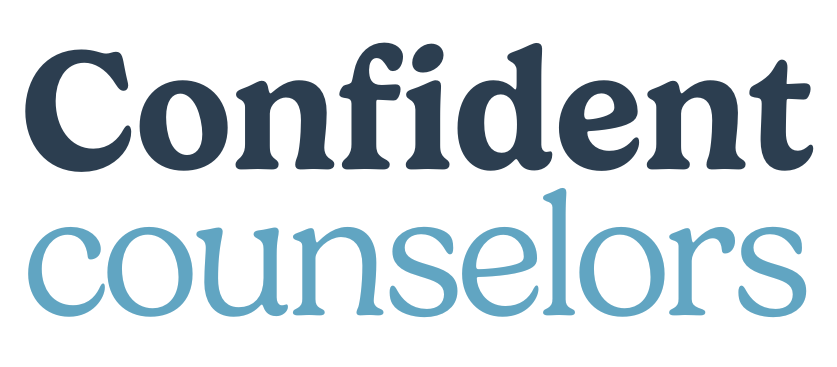Classroom management is challenging. It can be even more difficult to perfect when you only see the students once a week, at most. As school counselors, we often don’t have the time to implement intricate classroom management strategies when we are doing small groups or classroom guidance lessons. Here are some of my favorite tips to help keep students calm and focused during your counseling lessons.
Strategy 1: Set Expectations
This may seem somewhat obvious, but setting clear expectations for behavior can be easily forgotten when you are trying to get through a lot of material in a limited amount of time. With the need to cover so much of the curriculum so quickly, talking about appropriate behavior can be the first thing to go. However, it is one of the most crucial components of your lessons. If students’ behaviors are getting in the way of what you are teaching, their learning is limited.
One of my favorite ways to set expectations with students is to have them set their own expectations. Bring a large piece of paper or use a chalk/white board and ask the students what they think the expectations should be during your lesson. Write them down and keep the agreement posted throughout all of your lessons with those students. This helps to create student buy-in, and helps students to show ownership of their behavior.
Strategy 2: Point System
The point system has been by far my favorite classroom management technique. To start, I have the students create their own lists of expected and appropriate behavior during my lessons. Explain to them that when they are caught showing positive behavior and meeting the expectations, they will get a point.

After they earn 5 points, I offer some sort of positive reward. I have used candy, 2 minutes of talk time, letting them choose their own seats, watching a fun video, etc. I do not take away points for negative behavior, but I do take away points if they ask me about their points. Nothing is more frustrating than constant interruptions of “Ms. Chelsey, can we get a point?” “How many points do we have?” Not today, kids. Not today. I love this system because it really allows the kids to be accountable to themselves and to each other. I explain that how often they earn their reward is completely up to them. Many times I have seen the students encouraging each other to have positive behavior so that they can earn a point, which is a total win.
Strategy 3: Secret Student
I love to use this classroom management strategy during especially difficult times for the students, such as transitions, or when I ask them to sit quietly for a while. Select a student and write his/her name on a piece of paper before I start. I tell the students that I have a secret student in mind, and that if that student has positive behavior during the lesson, he/she will earn some type of positive reinforcement such as to pick his/her seat, a piece of candy, a special job, etc. At the end of the time, I decide whether or not the student I selected has met the expectations. If the student has, he/she earns the positive reinforcement. If not, I do not reveal who the student is, only that the expectations were not met. This is very helpful because it encourages all of the students to have positive behavior just in case they are the secret student!
Strategy 4: Seat Numbers
Because of lack of seating in my counseling office when I first started, I often didn’t have enough seats for the students in my small groups. Instead, we all had to sit on the floor. To me, this was a classroom management nightmare. Students didn’t have their own clearly defined space. They argued over where to sit and spent much of the time rolling around on the floor instead of listening. Something had to be done. Then I had the idea of providing seat numbers.

I cut some standard computer paper in half and numbered them. I then taped them to the floor in a circle. As the students came in, I gave them a number, and they were to sit on the piece of paper that corresponded with their number. I always saved number one for me, so that the kids didn’t argue over it. Another benefit of this strategy was that it helped me to be in control of who sits next to who. Also, if students got out of their spaces during the lesson, I could just instruct them to sit back on their number. Thankfully, I eventually got more seating options and no longer had to do my groups on the floor, but this classroom management strategy was so good that I couldn’t let it go. I just put the numbers on the seats instead of the floor!
Strategy 5: Praise Around The Negative Behavior
Regardless of how many classroom management procedures and systems you put in place, there are still students that can be difficult at times. When students are struggling to have positive behavior, one of my favorite strategies is to praise around that student. If two students are talking, I verbally praise the students in the room that are not talking. This catches the attention of the student who is struggling and encourages them to exhibit positive behavior. I can also provide positive feedback to those students who are doing what is expected.
Finding effective classroom management strategies as a school counselor can be challenging. I hope these 5 tips will help you to feel more confident about managing your students’ behaviors so they can ready to learn and focused on your lessons!
What are some of your favorite classroom management strategies?








This is excellent!! I love the secret student tip. That is helpful for groups too. Thank you!! 🙂
This is great! Thank you!